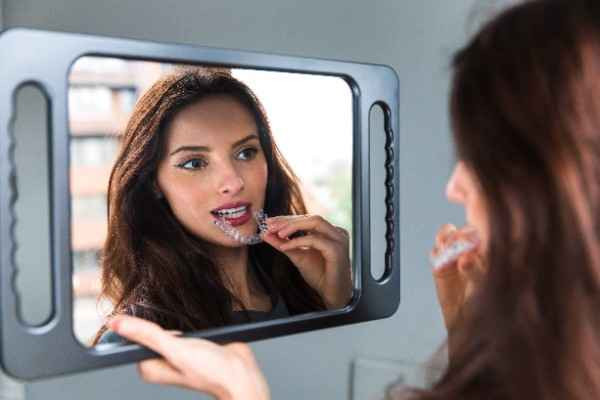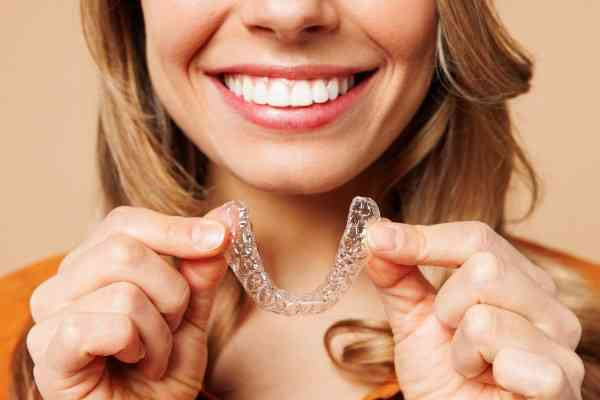views
Perfect Time to Whiten Your Smile
Thinking about whitening your teeth is an exciting step towards a brighter, more confident smile. But before diving straight in, timing is something worth considering. It’s not just about picking a whitening product or booking a session; when whitening is done can hugely influence both the results and comfort. Whether it’s an upcoming event, your dental health, or lifestyle habits, knowing the right moment to whiten your teeth makes a big difference. Let’s have a friendly chat about why timing truly matters before whitening.
Understanding the Whitening Process
How Teeth Whitening Works
Teeth whitening is more than just rubbing a bit of paste on your teeth. Most whitening treatments rely on bleaching agents like hydrogen peroxide or carbamide peroxide. These chemicals break down stains on and within the enamel, helping your teeth look visibly lighter. But this chemical reaction doesn’t happen in isolation. The state of your teeth and gums, your diet, and your daily habits all affect how well whitening works.

The Importance of Timing
Your mouth isn’t always in the perfect condition for whitening. For example, if your teeth are sensitive, or your gums are inflamed, whitening can cause discomfort or uneven results. Also, your lifestyle choices right before or after whitening sessions can impact how long the results last.
When to Avoid Whitening
Right After Dental Treatments
If you’ve just had dental work like fillings, extractions, or even a thorough cleaning, your mouth needs time to heal. Whitening too soon after these procedures can irritate sensitive areas and delay recovery. The bleaching agents can exacerbate any soreness or inflammation.
Recommendation: Wait at least two weeks after major dental treatments before starting whitening.
During Gum Problems
If you’re experiencing gum disease or inflammation, whitening treatments could worsen the irritation. Healthy gums are essential for a safe whitening experience.
Just Before a Big Event
It might seem tempting to whiten your teeth the day before a wedding, job interview, or holiday photo shoot. However, whitening treatments, especially professional ones, can cause temporary sensitivity or slight gum irritation. It’s better to start the process early enough to allow your mouth to settle.
Best Times to Whiten Your Teeth
After a Professional Check-Up
A check-up with your dentist ensures your teeth are in good shape. This is the perfect time to plan whitening because any underlying problems like cavities or plaque can be addressed first, which improves whitening effectiveness and reduces risks.
When Your Lifestyle Supports It
If you’re cutting back on staining habits such as smoking or drinking coffee, whitening now means longer-lasting results. It also reduces the chance of immediate re-staining.
Prior to Seasonal Social Events
Many people book whitening sessions before summer holidays or festive seasons to look their best. If you’re planning this, start at least two to three weeks in advance. This timing gives your teeth time to recover and the whitening results a chance to settle in evenly.
How Your Daily Habits Affect Timing
Smoking and Whitening
Smoking is one of the biggest enemies of a bright smile. Nicotine and tar stain teeth deeply and rapidly. If you smoke, whitening results can fade fast. Quitting or reducing smoking before whitening can make a significant difference. Even a short break before your treatment helps.
Diet Considerations
Foods and drinks like coffee, tea, red wine, and berries stain teeth. Consuming these right before or immediately after whitening can undermine your efforts. To protect your results, it’s best to reduce or avoid these for at least 48 hours before and after whitening treatments.
Oral Hygiene Routine
Good brushing and flossing habits prime your teeth for whitening. Whitening on a clean surface helps bleaching agents penetrate stains more effectively. If your teeth are coated with plaque or tartar, whitening won’t be as efficient.
Professional Advice Is Key
Consulting a Dentist
Before whitening, it’s wise to visit a Dentist in Shrewsbury for a professional assessment. They can evaluate your teeth and gums, check for any sensitivity or problems, and recommend the best timing and type of whitening for you. This personalised advice can prevent common pitfalls like increased sensitivity or patchy results.
Teeth Whitening: Tailored Treatments
Many dental clinics in Shrewsbury offer whitening services tailored to your schedule and needs. They can advise on the ideal time to start whitening based on your lifestyle, oral health, and upcoming events. Their expertise ensures the process is both safe and effective.
Timing for Different Whitening Methods
At-Home Kits
At-home whitening kits often require consistent use over several weeks. Because results come gradually, timing isn’t as critical as with professional treatments. However, using these kits when your teeth are healthy and free of sensitivity will give the best results. Avoid starting during any dental issues or if you expect important events within days.
Professional Treatments
In-clinic whitening delivers quicker, more dramatic results but may cause temporary sensitivity. This makes timing crucial. Plan treatments so you have at least a few days to recover. If you have multiple sessions, space them out over weeks
When You Should Delay Whitening
Pregnancy and Hormonal Changes
Hormonal fluctuations during pregnancy or menstruation can increase gum sensitivity and inflammation. Whitening during these times might cause discomfort or irritation. It’s safer to wait until your gums are less sensitive.
Recent Use of Certain Medications
Some medications increase tooth sensitivity or affect gum health. If you’re on such medication, discuss timing with your dentist before starting whitening.
Summary: Key Timing Tips
-
Avoid whitening immediately after dental work or if gums are inflamed.
-
Plan whitening at least 2–3 weeks before important events.
-
Schedule whitening after a professional check-up and cleaning.
-
Reduce smoking and staining foods before and after whitening.
-
Consult a Dentist in Shrewsbury to personalise your whitening plan.
-
Consider lifestyle changes as a good moment to whiten teeth.
The Role of Teeth Whitening Clinics
Opting for teeth whitening Shrewsbury clinics means you have access to professionals who understand the importance of timing. They’ll provide tailored advice, helping you avoid whitening at inappropriate times. Their expert guidance improves safety and satisfaction, ensuring your smile looks natural and lasts longer.

By booking a consultation, you get to plan your whitening sessions around your lifestyle and oral health, making sure you get the most out of your investment.
Conclusion
At EDS, we understand that timing is everything when it comes to teeth whitening. Whiten your teeth too soon or at the wrong time, and you risk discomfort or disappointing results. But with the right planning, professional advice, and lifestyle adjustments, whitening can be a safe and rewarding experience. Let your smile shine brightest by making timing work for you because a confident smile is worth the wait.


Comments
0 comment